Students Without Boundaries:
The Students Without Boundaries Program is a unique educational program that brings together bright students from at least four different countries throughout East-Central Europe along with students from Canada and the USA. The goal is simple: to shatter the myths and misconceptions that have caused endless strife in the region… by opening the hearts and minds of young people… the very people who will be the builders of the new east-central Europe!
Since 1994, the program has evolved, bringing together high-school-aged students (13 to 19) from Canada, the United States, Croatia, Slovakia, Serbia, Ukraine and Romania. It is an intensive program meant to break down the myths and misconceptions felt by many Hungarian minorities living outside of Hungary’s borders. These students, who live as minorities in their home countries, are exposed first-hand to their cultural roots through visits to historical and cultural sites including castles, museums, and landmarks. They attend lectures on human rights, the building of grass roots democratic organizations, media, as well as cultural integration and preservation. Participants develop a bond with like-minded students from all over the world, they recognize their similarities, and start to work together to help find ways to better their own lives and the lives of their communities. Bonds formed last a lifetime and the participants continue to connect and meet on a regular basis to assist both a younger generation and to continue to improve their lives by spreading the message of inclusiveness and cooperation.
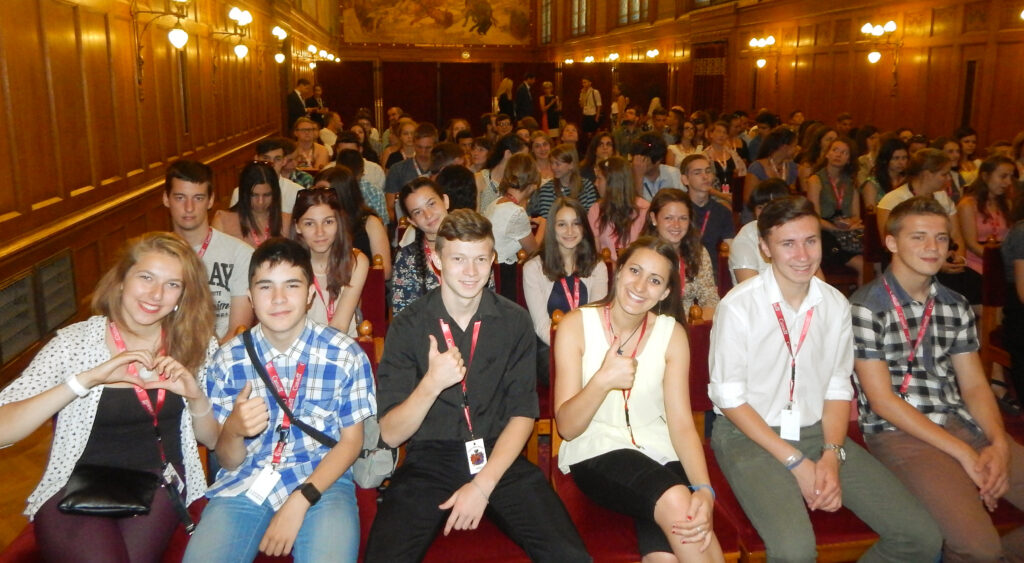
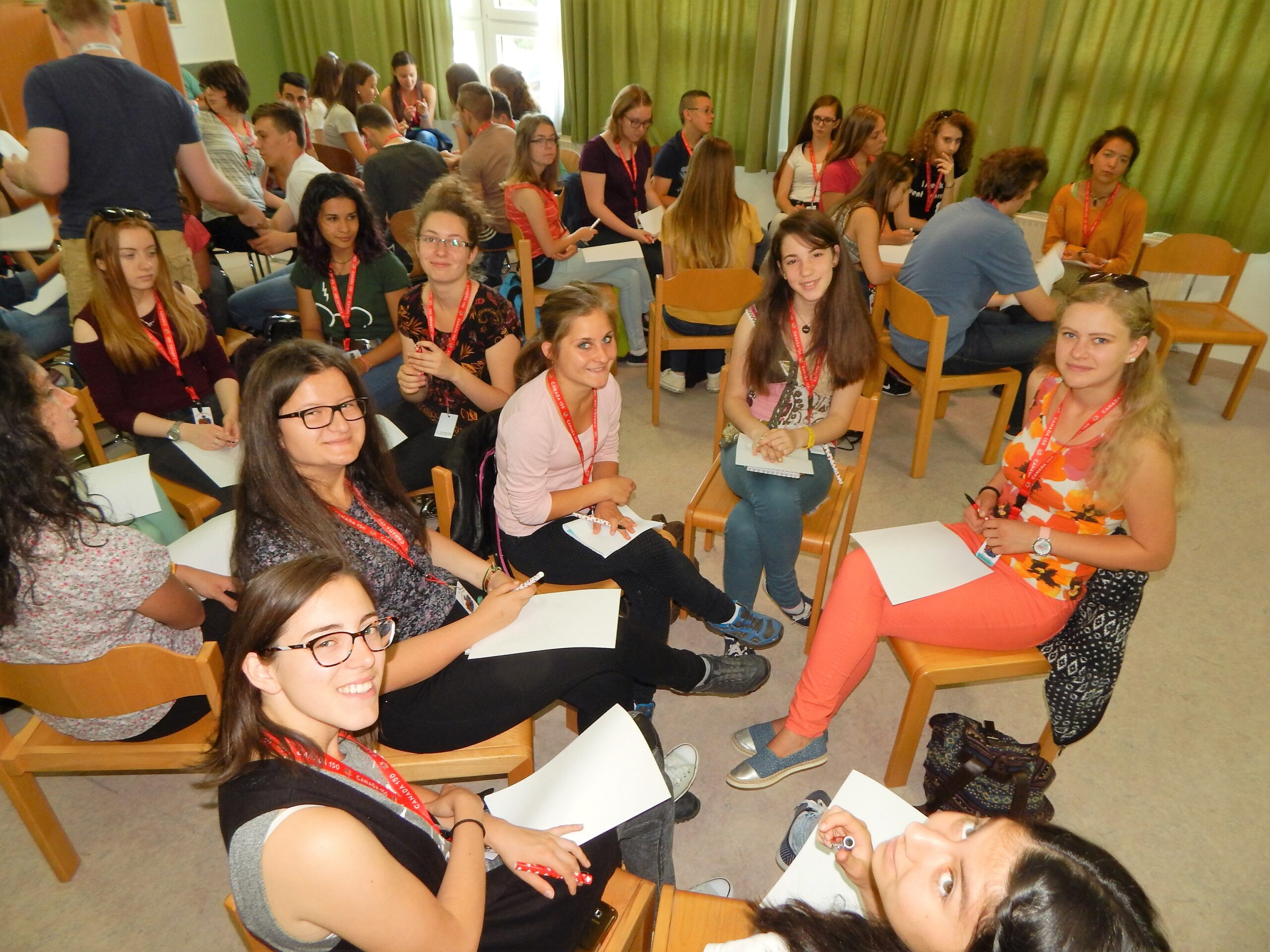
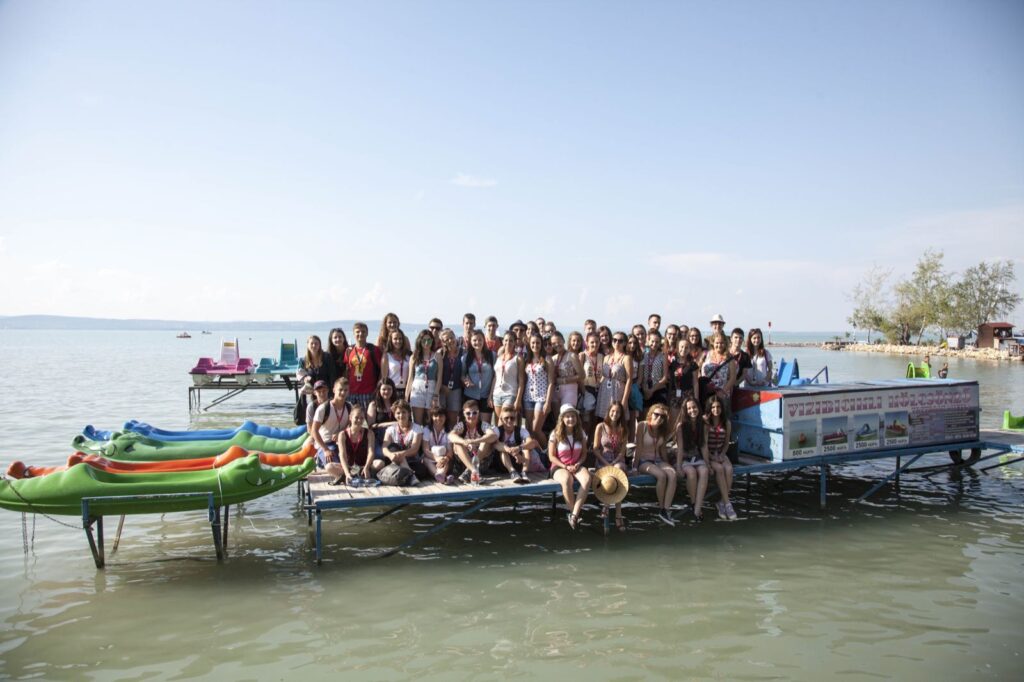
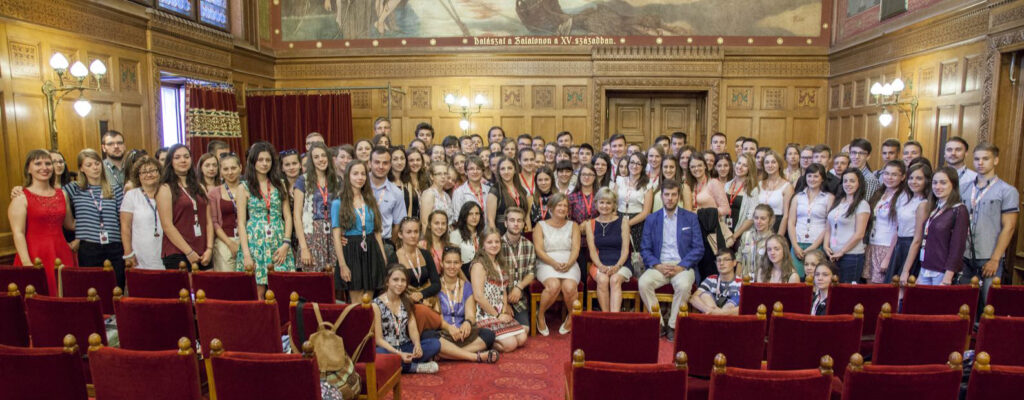
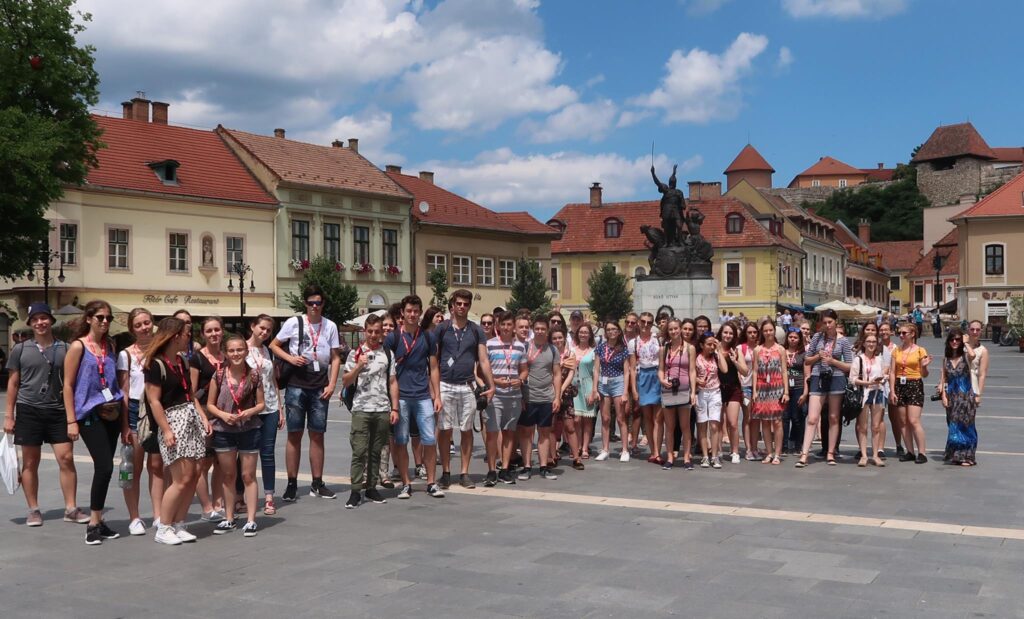
Scholarships:
The Rákóczi Foundation provides scholarships to students studying or working towards enhancing and furthering their knowledge of Hungarian culture through the study of language, arts, literature and history. Scholarships are provided both on merit for outstanding achievements as well as financial need. The scholarships and awards may be divided into two groups: Canadian Scholarships and European Scholarships.
Canadian Scholarships:
The Rákóczi Prize in Hungarian is awarded annually to a student enrolled in the Hungarian Studies program at the University of Toronto. The recipient is nominated by the course instructor and/or Professor and the prize is awarded through the Faculty of Arts and Sciences at the University of Toronto.
European Scholarships:
The Rákoczi Foundation provides scholarships to students in Europe who are enrolled in Hungarian Language or Culture courses and are studying to expand their knowledge of these fields.
Students are required to apply for scholarships as well as demonstrate financial need in addition to support from other sources. Successful applicants are required to provide follow-up on progress and successes. The scholarships are distributed to students from Slovakia, Ukraine, Romania and Serbia based on applicant ratios from the various regions. Students are awarded scholarships to assist in paying for tuition, textbooks, room and board and general help where the family financial situations would not permit attendance at university. Over the years many of these students have made an impact on building their own communities throughout east-central Europe and further afield. Many of the students feel gratitude toward the Foundation and subsequently give back by volunteering or supporting the work of the Foundation in the region.
Oral History Project:
The Rákóczi Foundation Inc., in partnership with the Multicultural History Society of Ontario, jointly launched an Oral History Project to collect, organize and preserve the personal stories and archival materials of Hungarian refugees who came to Canada between December 1956 and September 1958 as a direct result of the 1956 Hungarian Revolution.
This unique project, launched in 2006, marked the 50th anniversary of the Hungarian Revolution and focused on finding second and third generation descendants of these refugees. A team of interviewers, along with younger descendants of these refugees, interviewed their relatives (mothers, fathers, grandmothers, grandfathers, aunts, uncles etc.) about events that unfolded in 1956 as well as documenting their lives as refugees arriving and eventually settling in Canada. In 2006, it was deemed important to collect at least 50 such interviews to mark the 50 years that had passed since the Revolution and the arrival of the Hungarian refugees in Canada.
Ten years later, this project was revived to mark the 60th anniversary of the Revolution with the intent to extend the number of interviews to one hundred. Interviews were conducted in one of Canada’s official languages, English or French, as well as in Hungarian. The completed interviews and collected archival materials were gathered, catalogued and submitted to the historical website of Multicultural Canada. Later the entire collection including over 400 hours of audio, was transferred to Simon Fraser University in British Columbia to be archived. The material is readily available for scholars, researchers as well as the general public. For archived material and further information on the collection at Simon Fraser University please refer to https://digital.lib.sfu.ca/1956-hungarian-memorial-oral-history-project.
Historically, the Hungarians were one of the first waves of non-French, non-English speaking refugees to arrive in Canada during the postwar years. Ultimately, the project is intended to provide historians with insight into the lives and struggles of the 37,565 Hungarian refugees who came to Canada after the Revolution and to document their impact on Canada.
For more information on the project please see: www.1956memorial.com.
Hungarian Exodus Exhibit:
This ‘one-of-a-kind’ National Exhibit entitled “Hungarian Exodus, L’Exode Hongrois,” was created under the distinguished patronage of former Governor General of Canada, Her Excellency Michaëlle Jean in 2006 to mark the 50th Anniversary of the Hungarian Revolution and the arrival of 37,565 Hungarian refugees to Canada.
The exhibit, presented in both official languages of Canada (English and French) was created from the materials submitted during the development of the 1956 Oral History Project, www.1956memorial.com. The Exhibit demonstrates Canada’s outstanding role and contribution in accepting a large number of Hungarian refugees in between 1956 and 1958, as well as the contribution those Hungarian refugees made in helping to build the Canada we know today.
At the time, the Canadian Embassy in Budapest, headed by then Ambassador Robert Hage, requested an exact duplicate copy of the Exhibit to be displayed at museums and universities and conferences throughout Hungary. Since 2007, this copy of the Exhibit has been on display in Hungary as well, so that Hungarians could also learn about this important chapter of Canadian immigration history.
EXHIBIT OPENINGS:
The Exhibit has travelled extensively across the country during the past 14 years, from the Pier 21 Museum in Halifax to the University of British Columbia in Vancouver and many points in between: Halifax (twice), Montreal, Toronto (five locations), Ottawa, Hull, Hamilton, Niagara Falls, Winnipeg, Calgary, Vancouver. It has been exhibited at museums, city halls, churches, libraries, universities, health centers and public areas of provincial parliaments. Both the Oral History project and the Hungarian Exodus exhibit were created primarily to inform the Canadian public about the events of 1956 and the positive impact the Hungarian refugees have had on Canada since.
Hot Lunch Program:
Since 2010, the Rákóczi Foundation has supported hot lunch programs to provide one warm meal a day throughout the school year for students who live in poverty in Transcarpathia, Ukraine.
According to recent census data, the Hungarian minority makes up roughly 7 percent of the population of Uzhhorod (Ungvár); however, many neighbouring villages are predominantly ethnic Hungarian. Students from these surrounding villages, where an average monthly income is approximately $100 USD, attend school in Uzhhorod (Ungvár). One-parent families (or orphaned children) are unable to afford the roughly $0.50 USD for hot lunches at the school in addition to the cost of travel to and from school and living expenses. To prevent these under privileged students from going the entire day at school hungry and without energy, the Rákóczi Foundation supports 70 students enrolled at the Dayka Gábor Hungarian Language Middle School in Uzhhorod with hot lunches from the school cafeteria each day of the school year.
Trianon 100:
To commemorate the 100th anniversary of the Treaty of Trianon, the Rakoczi Foundation organized an essay competition to find out what lasting impact Trianon has had on the students living in the Carpathian basin today. We were astonished by the response: nearly 100 students submitted essays or short films in under thirty days as part of the competition. Moreover, nearly all essays examined how to turn a very devastating historical event into a more positive future.
Based on the overwhelmingly positive response and the important messages provided by students, young adults and professionals to the challenges faced in their native countries as a result of the Treaty of Trianon, the Board of Directors of the Foundation has decided to publish a book comprised of the best of these submitted essays. The book will be published in English and Hungarian to make more people aware of this historic event and its lasting effects on minorities living in east-central Europe. The details of the book are available in the “books” section of this website.
Rakoczi Family Circle:
All students and leaders who complete the Students Without Boundaries summer program become members of the Rakoczi Family Circle. The ever-expanding organization provides a professional and social network for participants to support one another from around the globe. Events organized for members include informal social gatherings referred to as R-Cafés where members come together for social gatherings and/or to discuss specific topics. R-Cafés are organized in towns and cities across east-central Europe and are an effective way to connect with past participants to expand the network as well as to reminisce about the experiences from the Students Without Boundaries programs and to stay in contact with each other.
More formal Rakoczi Retreats are organized once or twice each year. These gatherings are usually held over the course of a weekend with attendees coming from various regions or countries. The weekend gatherings are usually based around a theme and the assembled students part take in educational lectures, brainstorming or problem-solving activities, charitable activities as well as social events. These events form an important part of the work of the foundation that brings together students from various regions and age groups extending the network but also giving back to the function of the organization and the community. Such recent retreats have been held in Sepsiszentgyörgy (Sfantu Gheorghi, Romania), Budapest. The organization of such retreats has gone on-line since the start of the pandemic.
The Family Circle also provides students with an informal mentor program and help with employment as members who are active in their profession give back to provide help and guidance to the next generation. Additionally, there are smaller Rakoczi informal groups in various university towns across the region that provide assistance to students with any problems experienced as they settle into university life in a new city. These programs are run entirely by past participants of the Student Without Boundaries program who want to give back.
